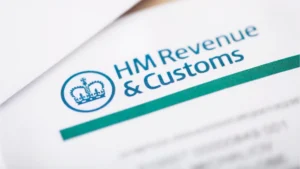UK Business Loans Made Simple – Get the Funding You Need, Fast
Hassle-free business finance from £25K to £5M, without the wait.
Unlock your growth with tailored UK business loans. Our expert team finds funding solutions to match your goals, whatever the reason.
- Loan from £25k to £5 million +
- Trusted by 500+ UK business owners
- Same day decisions
- Bad credit accepted
- Flexible repayment terms
How Our UK Business Loans Can Benefit You

Adaptable Loan Terms
We work with our clients on an individual basis to deliver tailored loan terms to align with your business goals and financial capabilities.

Competitive Interest Rates
We offer competitive rates designed to keep your financing costs manageable.

Fast Funding Solutions
Access to the funds your business needs swiftly, with approvals in as soon as 1 day.

Flexible Fuding Options
Every business has different funding needs. Whether it’s growth, cash flow or operations, we’ll find the right solution.

Transparent Terms
We believe in being transparent from the start. Our clear terms have no hidden fees, so you can fully understand your financial commitment.

Personalised Support
Our team is here to guide you through the process, offering expert advice and support tailored to your business.
What is a Business Loan?
A business loan is a type of financial solution that gives companies the money they need, whether they need a quick cash infusion to handle recurring costs and keep things running smoothly or more working capital to pursue expansion prospects.
These loans can be provided by banks, alternative lenders, and government-backed schemes, repayment terms depend on the type of loan and lender.
You can either opt for a secured business loans UK (where you put up assets as collateral) or unsecured loans (you don’t put anything up as security, but you might pay a higher interest rate). An ideal business loan would have flexible repayment conditions and competitive interest rates.
Business loans can be used for pretty much anything: expansion into a new market, buying equipment, stock investment, managing working capital or to stabilise your business.
No matter if you own a start-up or have an established business, the right loan can get you closer to your financial goals.
What Can a Business Loan Be Used For?
Business loans provide opportunities for entrepreneurs. Depending on the loan you opt for, the possibilities are almost endless. Here are some examples of how you could effectively use your business loan:
- Seizing a business opportunity that’s too good to let slide
- Purchasing commercial property to expand your business
- Exploring new markets
- Covering a dip in cash flow
- Paying for unforeseen business hiccups
- Covering VAT or tax obligations
- Investing in new technologies
How Does a UK Business Loan Work?
A business loan is a lump sum of capital that a company borrows directly from a lender, which it pays back over a set period of time, usually with interest. The process generally follows the following steps:
Application
Regardless of the route you take to secure funding for your business, the application process is going to look similar. You’ll need to provide your business’ financial information, your credit history, and a business plan to prove your repayment capability and the feasibility of the loan for the lender.
Approval & Offer
Depending on the route you choose for your business loan, the approval process can take anywhere from a few days to weeks. Traditional banks and government grants are reviewed by an underwriter (who will assess the credibility of the loan) and an offer may be made.
Alternative lenders, like Funding Guru, will also assess your business’s financial health and determine the loan amount, interest rate, and repayment terms (but tend to get the job done much faster).
Funding
Once your business loan is approved, the funds are deposited into your business’s account. If you opt for the traditional route, this can take weeks. If you go with Funding Guru, your funding can be with you in as little as a few days.
Repayments
Regardless of where you get your loan from, repayments are non-negotiable. You repay the loan in pre-agreed fixed instalments (weekly or monthly, depending on the agreement). Interest rates can be fixed (remaining constant) or variable (changing according to your market rates). Failure to repay your loan will impact your credit rating, but the reverse is also true: consistent loan repayments build up your credit score.
Completion
When all repayments are made, the loan is closed.
Types of Business Loans
At Funding Guru, we offer a range of business finance solutions, from commercial mortgages and bridging loans to cash advances and start-up funding. Our team of expert advisors can guide you across all facets of business loans and finance.
-
Bridgin Loan:
Bridging loans are fast turnaround loans that ‘bridge’ the gap before you get long-term finance in place. This can be anywhere from a few weeks to three years. -
Secured Loan:
A secured loan uses your assets as security to borrow a large sum of money, allowing you to repay it over a longer period of time. -
Unsecured Loan:
An unsecured loan is a great option if you’re looking for a quick cash injection to help your business grow. -
Asset Financ:
Purchasing new equipment that needs funding? Asset rich but cash poor and need to release some capital? Asset finance could be the answer. -
Invoice Finance:
Invoice finance allows you to borrow money secured against invoices due from your customers. -
VAT Funding
Got stung by a VAT bill you’re struggling to pay? A VAT loan could help you meet your HMRC obligations and improve your cash flow. -
Trade Finance
Reduce the risk of trading overseas and achieve your international goals by using trade finance. -
Stock Finance
Stock finance allows you to free up stock that may be tying up significant amounts of cash within your balance sheet. -
Merchant Cash Advance
A merchant cash advance is a great way to borrow money if your business processes credit or debit card payments. -
Jumbo Loans
A jumbo loan allows you to borrow up to £50m to fund large-scale property deals and finance often unique or ‘trophy’ assets.
How to Apply for a Funding Guru UK Business Loan

1. 60 Second Online Application
Fill out your details in our simple online application form.

2. Submit Your Documents
Provide us with the necessary documents to review the credibility of your application.

3. Approval Within 1 Day
1 business day could be all that stands between you and your funding goals.

4. Get Funds Straight To Your Accont
You’re good to go. Your approved funds will be sent to you, driving your business growth.
What Type of Loan is Right for My Business
Each industry faces specific financing challenges, and the right solution can make a significant difference in a business’s success. Here’s how our business loans can support different industries:
-
Construction & Trades
The construction industry requires significant upfront capital for materials, labour, and equipment before payments are received for completed work. Loans can help cover project costs and manage cash flow during delays. Asset finance could be for you. -
Retail & E-Commerce:
Retail businesses often require funding to manage seasonal demand, stock inventory, or expand their online presence. Loans can help to fund bulk inventory purchases, digital marketing & expanding physical store locations. Merchant cash advance could be your route. -
Hospitality & Restaurants
Hotels, restaurants and cafés have fluctuating cash flow due to seasonal changes, supply costs & operational expenses. Loans can assist with renovations, purchasing equipment and managing payroll in quiet seasons. Unsecured loans may be a good option for you. -
Healthcare & Medical Services
Clinics, private practices and care homes require funding to maintain and expand their services. Loans can be used for upgrading facilities, hiring specialists & managing insurance reimbursement delays. Secured loans could be for you. -
Transport & Logistics
Businesses in logistics, haulage, and transportation need capital to keep their operations running smoothly. A business loan can help with purchasing new vehicles or fleet maintenance and fuel and operational costs. Asset finance or secured loans could help. -
Technology & Startups
Tech start-ups and digital businesses require funding for research, product development and scaling operations. Business loans can support hiring developers and engineers & investing in software, infrastructure, and cybersecurity. If you’re just starting up - a start up loan may work for you. -
Manufacturing & Wholesale
Manufacturers and wholesalers need working capital to buy raw materials, scale production, and manage supply chains efficiently. Business financing supports investing in new machinery or expanding warehouse storage. Speak to our advisors on secured loans and stock finance. -
Professional Services
Law firms, accountancy practices, marketing agencies and consultancy businesses need working capital to sustain operations and grow their client base. Financing can be used for expanding teams, office space & marketing development. Invoice finance could be a good avenue for your business.
Why Choose Us
Fast, flexible funding tailored to your business needs. With expert advice and competitive rates, we help you grow with confidence.
-
Solutions Tailored To Your Needs:
Funding Guru’s personalised financing solutions designed to meet the needs of your business, no matter your industry. -
Transparent Approach:
We don’t believe in smoke and mirrors. With Funding Guru, you’ll experience transparency at every step of your financing journey, so you can make confident financial decisions. -
Proven Success Stories:
Our clients access a community of thriving businesses that are going from strength to strength with Funding Guru's financial expertise and support. -
Decades of Industry Experience:
Rely on a partner who doesn’t just talk the talk. Our expert advisors have extensive industry experience, providing you with insights and guidance to navigate the complexities of business finance. -
Efficiency and Simplicity:
We don’t like things to become over-complicated. Our process makes obtaining business finance quick and efficient, allowing you to focus on what matters - growing your business.
Testimonials
Frequently Asked Questions
What business loan options does Funding Guru offer?
Funding Guru provides a range of flexible business loan solutions in the UK, including secured business loans, unsecured business loans, asset finance, and bridging loans. Whether you need quick funding for cash flow management or long-term capital for business growth, we tailor loans to suit your needs.
How can I get a quick business loan in the UK?
Quick business loans are available through online lenders such as the Funding Guru, alternative finance providers, and some banks. The application process is typically streamlined, requiring basic financial details, and funds can often be disbursed within 48 hours under exceptional circumstances.
What are the eligibility requirements for business loans in the UK?
Eligibility depends on factors such as business turnover, credit history, trading history, and loan purpose. Get in touch for more details.
Are there business loans available for startups in the UK?
Yes, start-up business loans are available, but they may require a solid business plan, a personal guarantee, or alternative forms of security. Reach out to learn more!
How much can I borrow with a quick business loan?
Loan amounts vary based on lender criteria, business revenue, and creditworthiness. At Funding Guru, we offer quick business loans from £25k+.
How much can I borrow with a quick business loan?
Loan amounts vary based on lender criteria, business revenue, and creditworthiness. At Funding Guru, we offer quick business loans from £25k+.
What are the interest rates for quick business loans in the UK?
Interest rates depend on factors like credit score, loan term, and whether the loan is secured or unsecured. Rates can start from as low as 4-5% but may be higher for riskier applicants or short-term loans.
Can I get a business loan with bad credit in the UK?
Yes, we offer business loans to those with bad credit. However, these loans often come with higher interest rates, shorter repayment terms, or additional security requirements.
Read Our Latest Business Loan Related Articles

9 Ways to Improve Your Business Credit Score (2025)
Discover how to improve your business credit score in the UK with 9 practical steps to boost financial credibility and secure better funding options.

Understanding the Risks and Rewards of Using Personal Assets as Collateral for Business Loans
Explore the implications of using personal assets for loans and investments. Understand the balance between risk and reward today!

Unexpected Tax Bills? Best Solutions for UK Businesses
Facing an unexpected tax bill? Explore financing options, tax reduction strategies & prevention tips to protect your UK business from financial strain.
Does Your Business Require a Business Loan?

Borrow upto £5million Within Days
Contact Us
Grow your business with our flexible and tailored business loans in the UK. Apply now to secure the financing your business needs.

